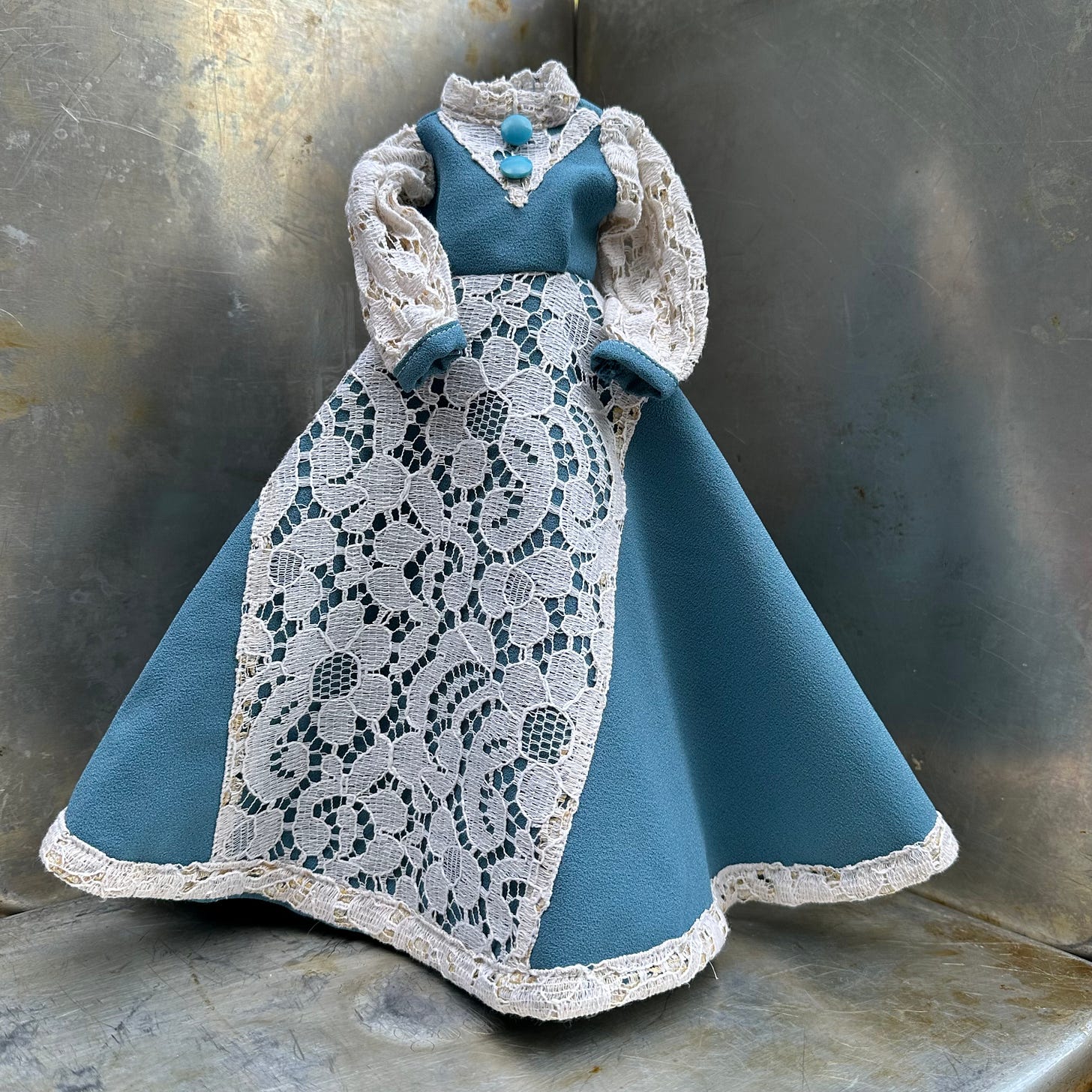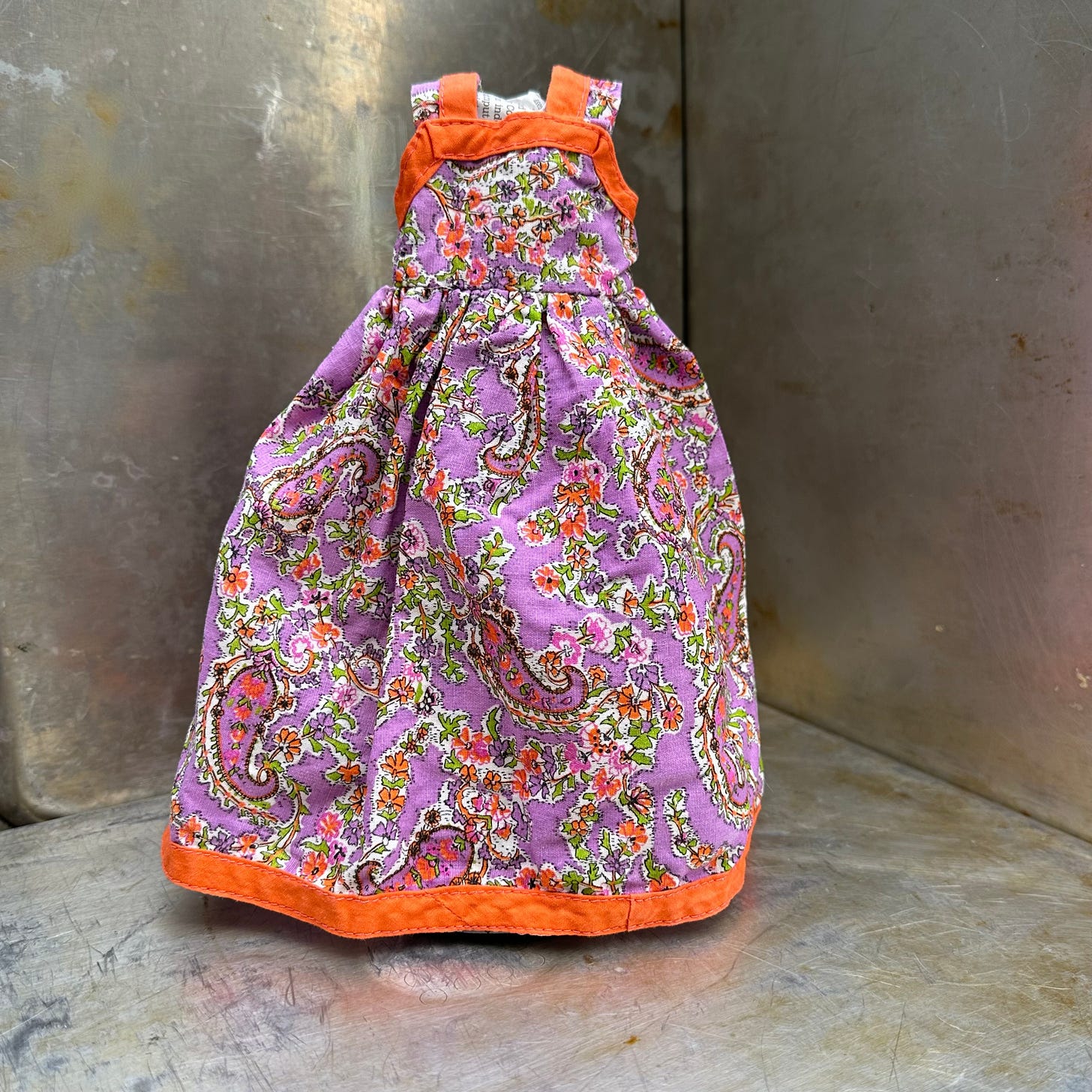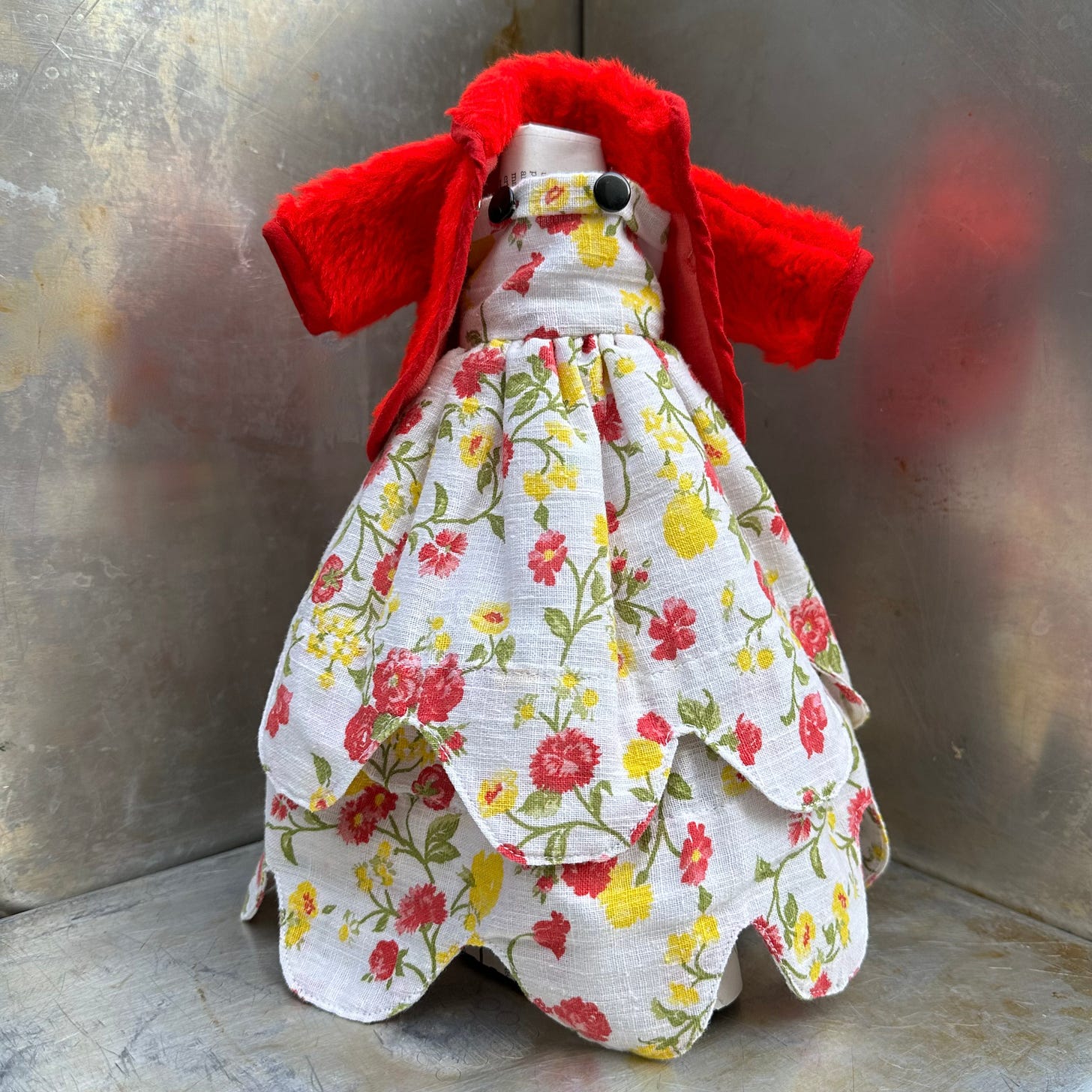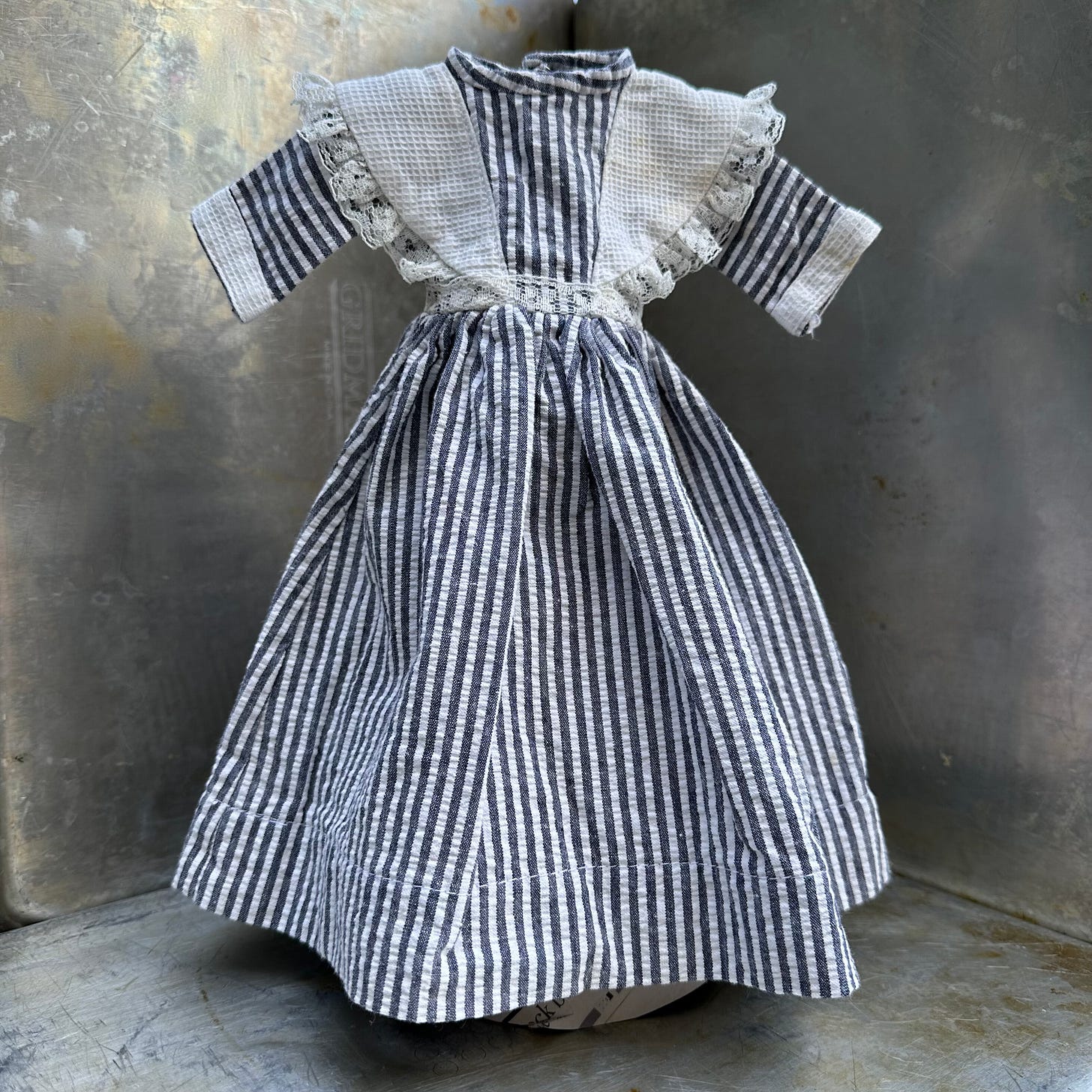JOLENE'S CLOTHES
“She didn’t have much patience for music or art. ‘Different,’ was the word she used....”
I’m not sure why Dad left me in South Dakota with his parents that summer. He was headed to Fargo to paint ride panels for a carnival while my mom and brother stayed home in Albuquerque. (Though my parents were still together then, we often split as a family, with Dad taking one kid on the road.) On other trips, I’d helped him mix colors or clean brushes, but maybe this time he was working for a “bad-news guy.” Or maybe he needed to drink a few beers and do the job without worrying about me. All I know is that the night before he left, I cried hard, then spent the next morning jumping rope in the hall outside my grandparents’ one-room apartment.
Out of shyness, I might have jumped all day but for the news, heard on a stranger’s radio, that drove me in to Gran. “Elvis died,” I said.
“Just another singer,” she replied. She didn’t have much patience for music or art. “Different,” was the word she used, and it applied to almost everything my creative father loved. At 17, he’d joined the circus just to get a ride out of town. Eventually he settled in New Mexico, where he created paintings and carvings with such speed and skill, everyone considered his right hand to be “magic.” I tried hard to stump him, but there seemed to be nothing he could not draw.
What would I do for three days without him?
Along with my jump rope, I’d brought a set of markers, the thin paperback history of costume I’d been given for my ninth birthday, and a Madame Alexander doll I called Jolene who wore a white dress with lace trim and an emerald green velvet sash. I often wished that I could shrink myself to fit into Jolene’s clothes.
My own clothing that day was probably a shapeless terrycloth romper my mom made—a short-legged sack held up over my flat chest by a thick noodle tie at the neck. Mom made most of my clothes except the ones handed down by my aunt Jennifer or bought at Thrift Town in Albuquerque. But though I was a mountain kid, I craved frocks and party dresses, plaid skirts and blazers from the thick Sears catalog, and especially the twirly-skirted dirndl Maria wore when she danced with Captain von Trapp. My longing left the pages of my costume book dog-eared and soft from touch.
“Does your doll have clothes?” Gran asked, breaking the silence between us.
I showed her the few I’d made: squares of fabric with jagged cut-out armholes.
Nodding at the costume book, Gran said, “Pick what you want.”
Before she could change her mind, I showed her a strapless ball gown with sheer silk panels floating away from the voluminous skirt. “Can you make this one?”
She was already moving her sewing machine from the closet to the small table.
“What about this one?”
She nodded.
Together we sat on her bed and rummaged through a box of scraps. We poured buttons from a Sanka jar, choosing only the pearls and sparklers. Gran stripped Jolene to her pantaloons and ran a tape measure under her arms, up her back and around her neck. She made careful notes before drawing a simple pattern on a sheet of newspaper. And then she just began to cut and sew. In what seemed like minutes, we were fastening the snaps on a gown the color of spring lilacs, and Gran was already thinking about what came next. Running her hand over the soft wool of an old shirt, she said, “This red would make a nice warm winter dress.”
That day, Gran taught me to make tiny stitches to secure snaps, and to sew a button so that it stayed put. And before Grandpa came home from work at the dry cleaners downstairs, she had made Jolene an entire wardrobe: ten dresses, two fur coats and a hooded cape. There was no dress in my costume book that Gran could not sew, but it was not until many years later, after both she and Dad were long gone, that I found her small creations and thought to consider the origin of my father’s magic hand.
—Tanya Ward Goodman
Tanya Ward Goodman is the author of the memoir Leaving Tinkertown. Her essays, interviews and articles about caregiving, art and travel have appeared in The Washington Post, Variable West, Atlas Obscura and elsewhere. She is working on a second memoir.














